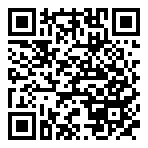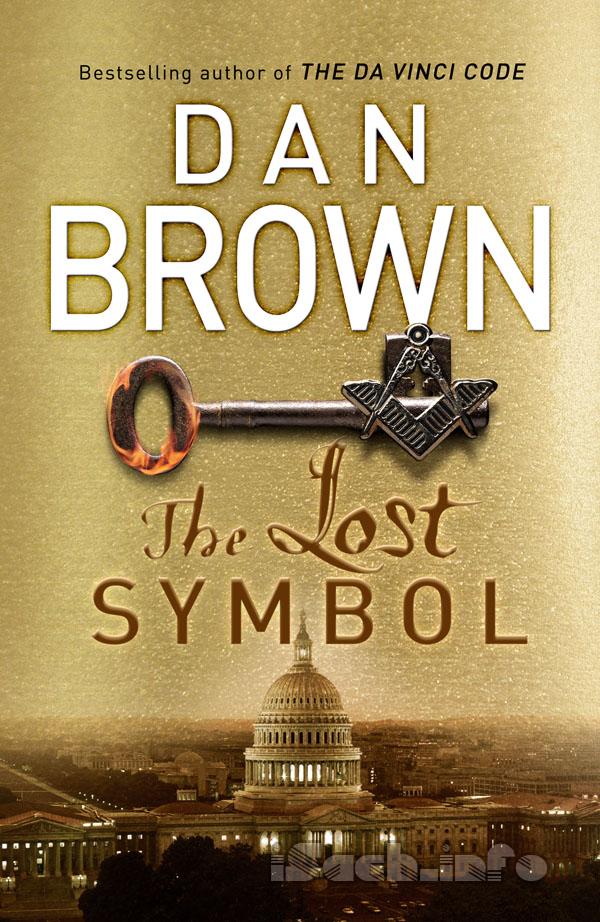Chapter 16
S
ecurity chief Trent Anderson stormed back toward the Capitol Rotunda, fuming at the failure of his security team. One of his men had just found a sling and an army-surplus jacket in an alcove near the east portico.The goddamn guy walked right out of here!
Anderson had already assigned teams to start scanning exterior video, but by the time they found anything, this guy would be long gone.
Now, as Anderson entered the Rotunda to survey the damage, he saw that the situation had been contained as well as could be expected. All four entrances to the Rotunda were closed with as inconspicuous a method of crowd control as Security had at its disposal—a velvet swag, an apologetic guard, and a sign that read THIS ROOM TEMPORARILY CLOSED FOR CLEANING. The dozen or so witnesses were all being herded into a group on the eastern perimeter of the room, where the guards were collecting cell phones and cameras; the last thing Anderson needed was for one of these people to send a cell-phone snapshot to CNN.
One of the detained witnesses, a tall, dark-haired man in a tweed sport coat, was trying to break away from the group to speak to the chief. The man was currently in a heated discussion with the guards.
“I’ll speak to him in a moment,” Anderson called over to the guards. “For now, please hold everyone in the main lobby until we sort this out.”
Anderson turned his eyes now to the hand, which stood at attention in the middle of the room. For the love of God. In fifteen years on security detail for the Capitol Building, he had seen some strange things. But nothing like this.
Forensics had better get here fast and get this thing out of my building.
Anderson moved closer, seeing that the bloody wrist had been skewered on a spiked wooden base to make the hand stand up. Wood and flesh, he thought. Invisible to metal detectors. The only metal was a large gold ring, which Anderson assumed had either been wanded or casually pulled off the dead finger by the suspect as if it were his own.
Anderson crouched down to examine the hand. It looked as if it had belonged to a man of about sixty. The ring bore some kind of ornate seal with a two-headed bird and the number 33. Anderson didn’t recognize it. What really caught his eye were the tiny tattoos on the tips of the thumb and index finger.
A goddamn freak show.
“Chief?” One of the guards hurried over, holding out a phone. “Personal call for you. Security switchboard just patched it through.”
Anderson looked at him like he was insane. “I’m in the middle of something here,” he growled.
The guard’s face was pale. He covered the mouthpiece and whispered. “It’s CIA.”
Anderson did a double take. CIA heard about this already?!
“It’s their Office of Security.”
Anderson stiffened. Holy shit. He glanced uneasily at the phone in the guard’s hand.
In Washington’s vast ocean of intelligence agencies, the CIA’s Office of Security was something of a Bermuda Triangle—a mysterious and treacherous region from which all who knew of it steered clear whenever possible. With a seemingly self-destructive mandate, the OS had been created by the CIA for one strange purpose—to spy on the CIA itself. Like a powerful internal-affairs office, the OS monitored all CIA employees for illicit behavior: misappropriation of funds, selling of secrets, stealing classified technologies, and use of illegal torture tactics, to name a few.
They spy on America’s spies.
With investigative carte blanche in all matters of national security, the OS had a long and potent reach. Anderson could not fathom why they would be interested in this incident at the Capitol, or how they had found out so fast. Then again, the OS was rumored to have eyes everywhere. For all Anderson knew, they had a direct feed of U.S. Capitol security cameras. This incident did not match OS directives in any way, although the timing of the call seemed too coincidental to Anderson to be about anything other than this severed hand.
“Chief?”The guard was holding the phone out to him like a hot potato. “You need to take this call right now. It’s . . .” He paused and silently mouthed two syllables. “SA-TO.”
Anderson squinted hard at the man. You’ve got to be kidding. He felt his palms begin to sweat. Sato is handling this personally?
The overlord of the Office of Security—Director Inoue Sato—was a legend in the intelligence community. Born inside the fences of a Japanese internment camp in Manzanar, California, in the aftermath of Pearl Harbor, Sato was a toughened survivor who had never forgotten the horrors of war, or the perils of insufficient military intelligence. Now, having risen to one of the most secretive and potent posts in U.S. intelligence work, Sato had proven an uncompromising patriot as well as a terrifying enemy to any who stood in opposition. Seldom seen but universally feared, the OS director cruised the deep waters of the CIA like a leviathan who surfaced only to devour its prey.
Anderson had met Sato face-to-face only once, and the memory of looking into those cold black eyes was enough to make him count his blessings that he would be having this conversation by telephone.
Anderson took the phone and brought it to his lips. “Director Sato,” he said in as friendly a voice as possible. “This is Chief Anderson. How may I—”
“There is a man in your building to whom I need to speak immediately.” The OS director’s voice was unmistakable—like gravel grating on a chalkboard. Throat cancer surgery had left Sato with a profoundly unnerving intonation and a repulsive neck scar to match. “I want you to find him for me immediately.”
That’s all? You want me to page someone? Anderson felt suddenly hopeful that maybe the timing of this call was pure coincidence. “Who are you looking for?”
“His name is Robert Langdon. I believe he is inside your building right now.”
Langdon? The name sounded vaguely familiar, but Anderson couldn’t quite place it. He was now wondering if Sato knew about the hand. “I’m in the Rotunda at the moment,” Anderson said, “but we’ve got some tourists here . . . hold on.” He lowered his phone and called out to the group, “Folks, is there anyone here by the name of Langdon?”
After a short silence, a deep voice replied from the crowd of tourists. “Yes. I’m Robert Langdon.”
Sato knows all. Anderson craned his neck, trying to see who had spoken up.
The same man who had been trying to get to him earlier stepped away from the others. He looked distraught . . . but familiar somehow.
Anderson raised the phone to his lips. “Yes, Mr. Langdon is here.”
“Put him on,” Sato said coarsely.
Anderson exhaled. Better him than me. “Hold on.” He waved Langdon over. As Langdon approached, Anderson suddenly realized why the name sounded familiar. I just read an article about this guy. What the hell is he doing here?
Despite Langdon’s six-foot frame and athletic build, Anderson saw none of the cold, hardened edge he expected from a man famous for surviving an explosion at the Vatican and a manhunt in Paris. This guy eluded the French police . . . in loafers? He looked more like someone Anderson would expect to find hearthside in some Ivy League library reading Dostoyevsky.
“Mr. Langdon?”Anderson said, walking halfway to meet him. “I’m Chief Anderson. I handle security here. You have a phone call.”
“For me?” Langdon’s blue eyes looked anxious and uncertain.
Anderson held out the phone. “It’s the CIA’s Office of Security.”
“I’ve never heard of it.”
Anderson smiled ominously. “Well, sir, it’s heard of you.”
Langdon put the phone to his ear. “Yes?”
“Robert Langdon?” Director Sato’s harsh voice blared in the tiny speaker, loud enough that Anderson could hear.
“Yes?” Langdon replied.
Anderson stepped closer to hear what Sato was saying.
“This is Director Inoue Sato, Mr. Langdon. I am handling a crisis at the moment, and I believe you have information that can help me.”
Langdon looked hopeful. “Is this about Peter Solomon? Do you know where he is?!”
Peter Solomon? Anderson felt entirely out of the loop.
“Professor,” Sato replied. “I am asking the questions at the moment.”
“Peter Solomon is in very serious trouble,” Langdon exclaimed. “Some madman just—”
“Excuse me,” Sato said, cutting him off.
Anderson cringed. Bad move. Interrupting a top CIA official’s line of questioning was a mistake only a civilian would make. I thought Langdon was supposed to be smart.
“Listen carefully,” Sato said. “As we speak, this nation is facing a crisis. I have been advised that you have information that can help me avert it. Now, I am going to ask you again. What information do you possess?”
Langdon looked lost. “Director, I have no idea what you’re talking about. All I’m concerned with is finding Peter and—”
“No idea?” Sato challenged.
Anderson saw Langdon bristle. The professor now took a more aggressive tone. “No, sir. No damned idea at all.” Anderson winced. Wrong. Wrong. Wrong. Robert Langdon had just made a very costly mistake in dealing with Director Sato.
Incredibly, Anderson now realized it was too late. To his astonishment, Director Sato had just appeared on the far side of the Rotunda, and was approaching fast behind Langdon. Sato is in the building! Anderson held his breath and braced for impact. Langdon has no idea.
The director’s dark form drew closer, phone held to ear, black eyes locked like two lasers on Langdon’s back.
Langdon clutched the police chief’s phone and felt a rising frustration as the OS director pressed him. “I’m sorry, sir,” Langdon said tersely, “but I can’t read your mind. What do you want from me?”
“What do I want from you?” The OS director’s grating voice crackled through Langdon’s phone, scraping and hollow, like that of a dying man with strep throat.
As the man spoke, Langdon felt a tap on his shoulder. He turned and his eyes were drawn down . . . directly into the face of a tiny Japanese woman. She had a fierce expression, a mottled complexion, thinning hair, tobacco-stained teeth, and an unsettling white scar that sliced horizontally across her neck. The woman’s gnarled hand held a cell phone to her ear, and when her lips moved, Langdon heard the familiar raspy voice through his cell phone.
“What do I want from you, Professor?” She calmly closed her phone and glared at him. “For starters, you can stop calling me ‘sir.’ ”
Langdon stared, mortified. “Ma’am, I . . . apologize. Our connection was poor and—”
“Our connection was fine, Professor,” she said. “And I have an extremely low tolerance for bullshit.”



 ePub
ePub A4
A4